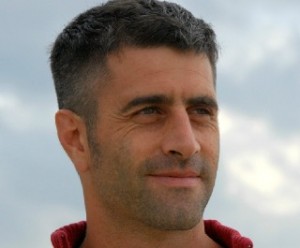Yossi Alpher is an independent security analyst. He is the former director of the Jaffee Center for Strategic Studies at Tel Aviv University, a former senior official with the Mossad, and a former IDF intelligence officer. Views and positions expressed here are those of the writer, and do not necessarily represent APN's views and policy positions.
This week, Alpher discusses whether the reform camp, allied with President Rouhani, is poised to triumph in Iran's elections; what are the advantages and drawbacks of a seaport for Gaza and who opposes it; Alpher's forecast on the matter; and whether we can say it's "good news" that the Syria cessation of hostilities appears to be holding, however partially and tenuously.



